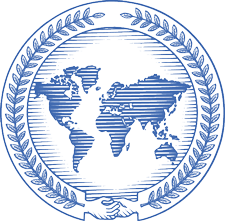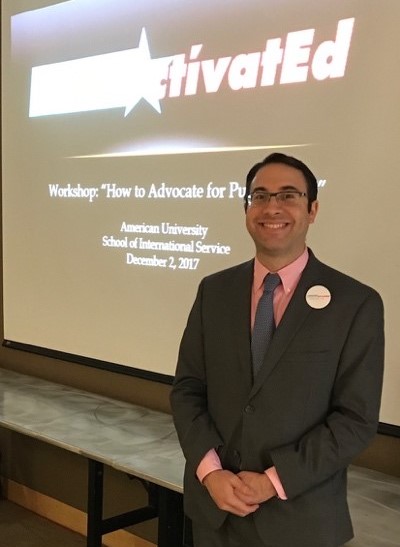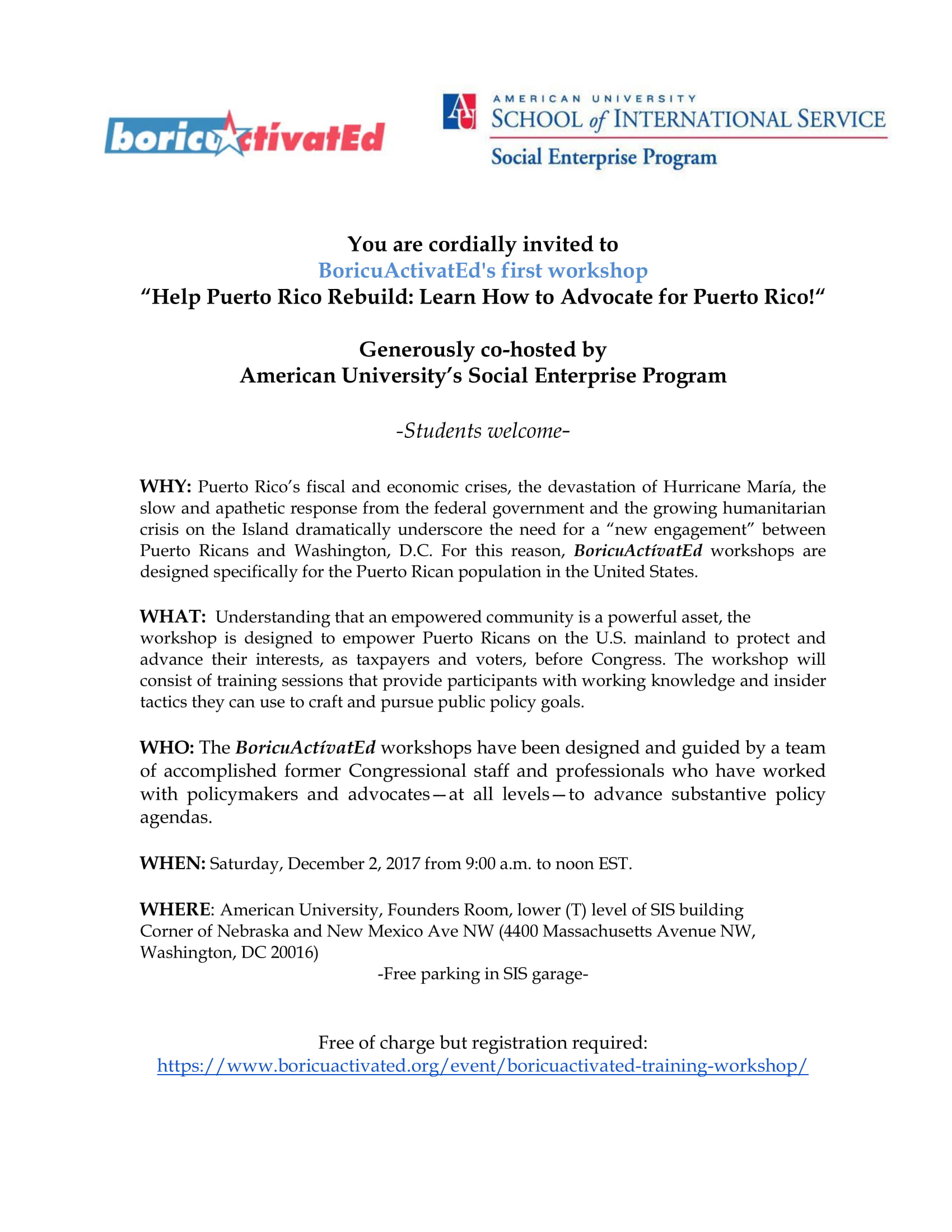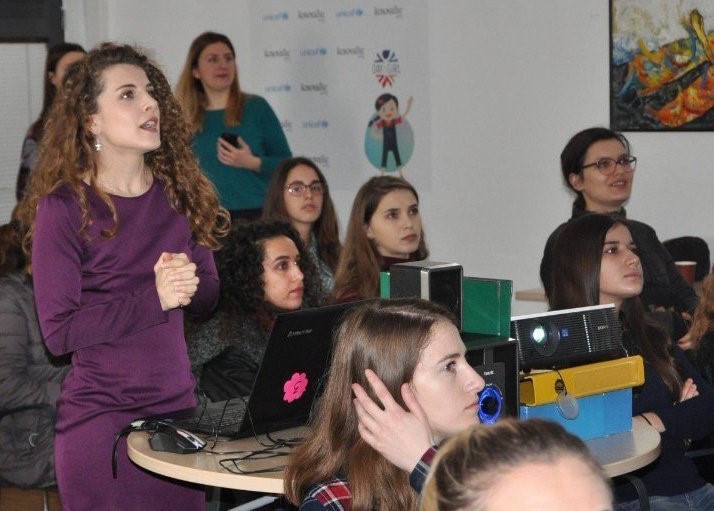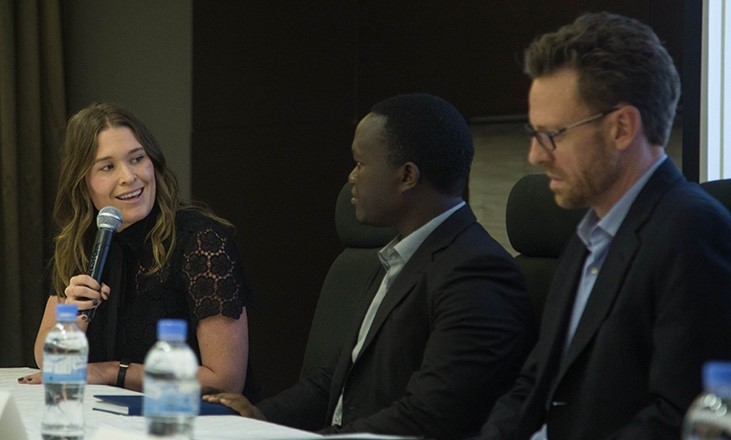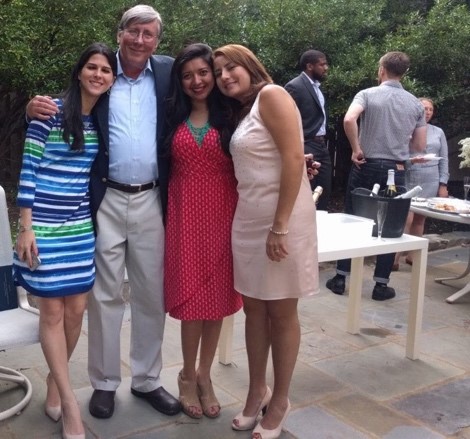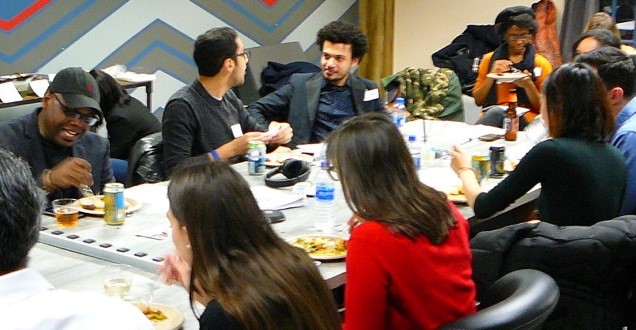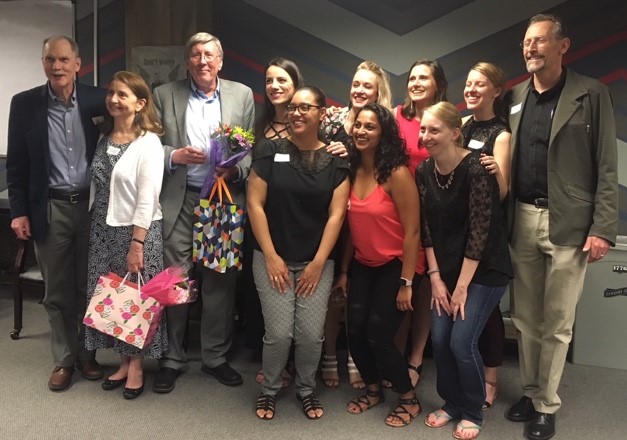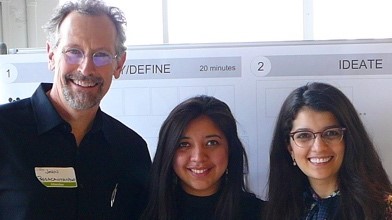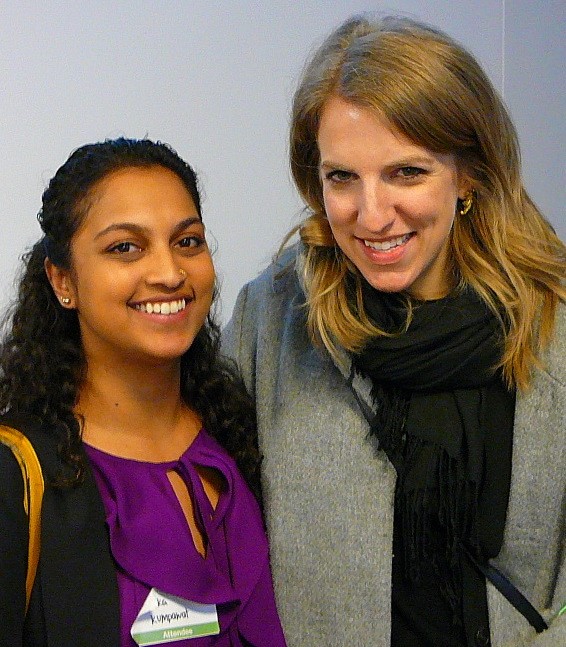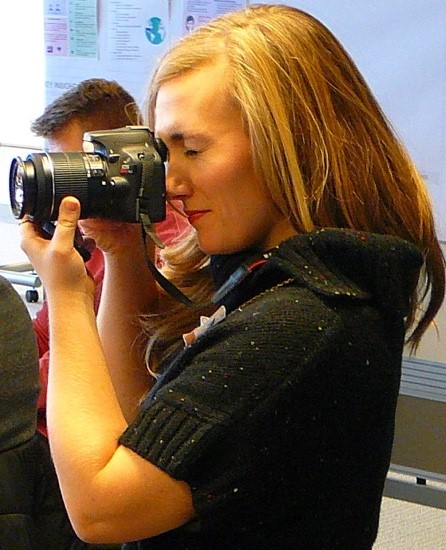
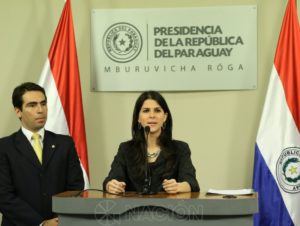
Magali Caceres
Magali Caceres asume como nueva Ministra de la Juventud
Less than 5 months after receiving her SE MA, Magali Caceres (Cohort 5) was appointed by the President of Paraguay, Horacio Cartes, to become her country’s Minister of Youth. Maga prepared for this intrapreneurial possibility the previous summer by using an assignment in her Leading Social Innovation course to shadow Paraguay’s minister of Community Development.
Maga’s leadership studies also taught her the importance of small wins and early victories, so she gave a lot of attention to planning her first 100 days. Read more about her appointment as Minister of Youth in La Nacion here.
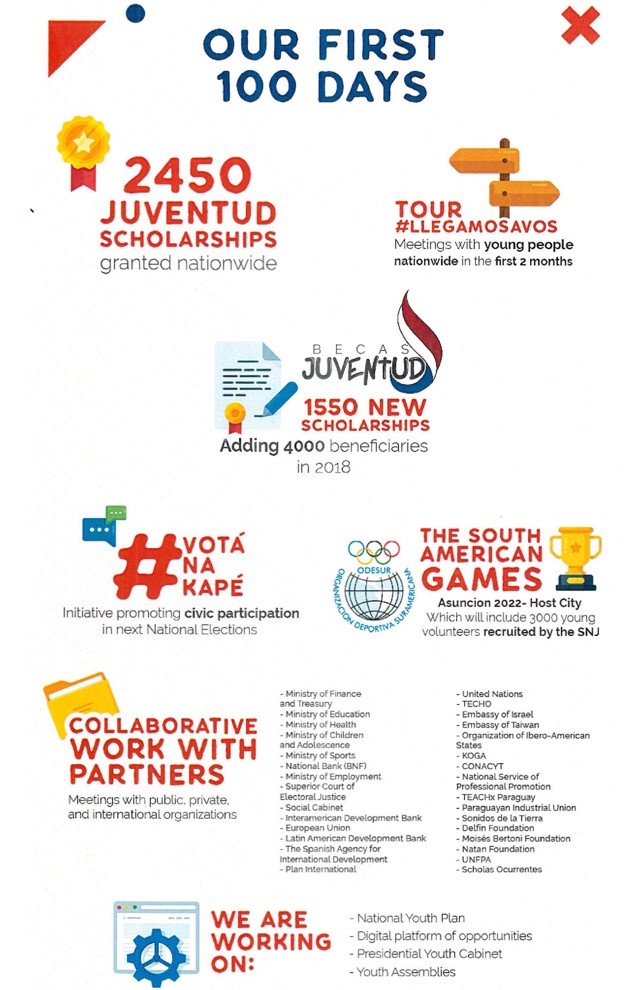
 Grand Slam Baseball
Grand Slam Baseball
Maga’s Cohort 5 classmate, Gurmat Raunaq Sahni, used his grad studies to incubate and launch Grand Slam Baseball in India. His has been collaborating with a wide-ranging mix of organizations (Major League Baseball, Pittsburgh Pirates, Play Global, the United Nations, and the US Department of State) to bring American-style baseball to India. He uses a social enterprise model which trains 2 low-income youths for every tuition-paying private school athlete they enroll. GSB also built India’s first professional-sized baseball field, and recently expanded its New Delhi operation to Mumbai.
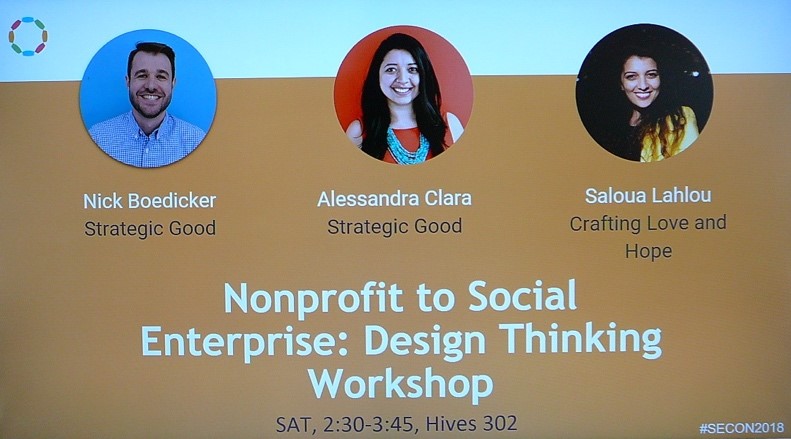
2017 Harvard Social Enterprise Conference
Sometimes the best form of recognition is having your work noticed by some of the top universities in your field. Since 2012 SE students have attended as a group the Harvard Social Enterprise Conference.
At the 2017 Conference, the Cohort 2 and 3 team that created the consulting firm Strategic Good were invited to offer a workshop on their approach to design thinking – the first time the SE Program was represented among the Harvard speakers.
Strategic Good’s workshop was attended by representatives from Dartmouth’s Tuck School of Business. Impressed, Dartmouth quickly contracted with Strategic Good to train all 285 of Tuck’s entering MBAs in design thinking.
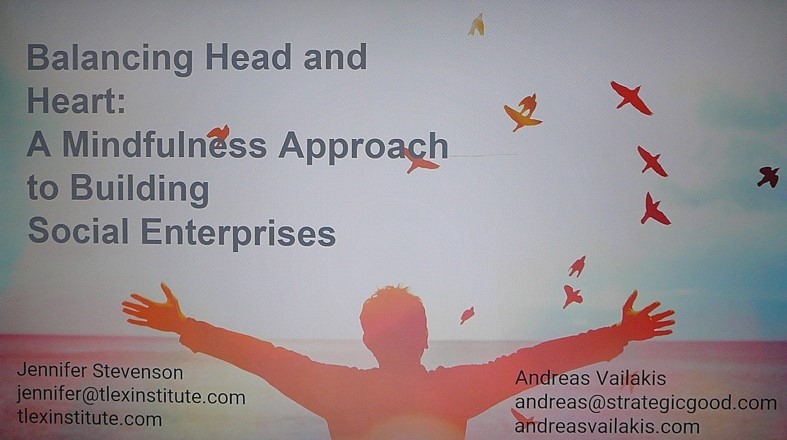
2018 Harvard SECON
The 2018 Harvard SECON program listed three sessions led by SE alumni: Nick Boedicker (Cohort 2) with Alessandra Clara (Cohort 3) and Saloua Lahlou (Cohort 5) Nonprofit to Social Enterprise; Andreas Vailakis (Cohort 3) Balancing Head and Heart; and Erin Houston (Cohort 3) Creating Economic Opportunities for Women.
Recognition is receiving one of the top fellowships in your field. Khavi Homsonbath, a Cohort 4 Fulbright Scholar, was selected for UK’s Chevening Award which has allowed him to continue his studies of social innovation at University College London. Social entrepreneur Deborah Agustoni (Cohort 5) was awarded the Denise Kotlik Scholarship to be a member of Good Counsel’s 6-month accelerator for start-ups and emerging nonprofits. Deborah was also chosen to be in Project Entrepreneur’s Class of 2018, an intensive program for female venture founders sponsored by UBS and Rent the Runway Foundation.
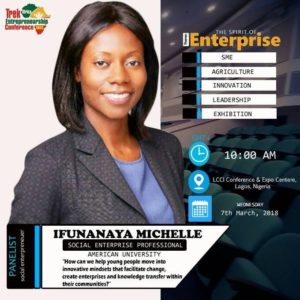
Ifunanya Enezuagu
Recognition is getting re-connected with your home. Ifunanya Enezuagu (Cohort 7) was invited to be a guest panelist at the Trek Africa Entrepreneurship Conference in Lagos. Betül Özyılmaz (also Cohort 7) was interviewed in a live broadcast by CNN Turkey about how her new start-up can help grow the SE sector in that country. In a Washington Post article SE alum Federico de Jesus (Cohort 2) was quoted about how, when hurricanes hit, people in DC who don’t usually think about Puerto Rico, start to.
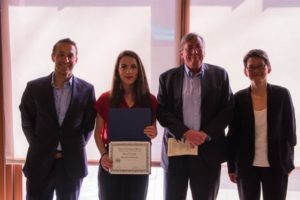
Rina Fetahaj
Recognition is being noticed by your own school. The Second Place in Kogod’s Big Idea Pitch Competition was won by Charlotte Ingalls and Michael Kim (both cohort 7). The SIS 2017-18 SE Program Award for Notable Professional Contribution was given to Rebecca Villalobos and the Notable Service Award to Rina Fetahaj (both Cohort 6).
Sometimes the recognition that matters most is the warm feeling that comes from being embraced by one of your SE heroes at your favorite bookstore.
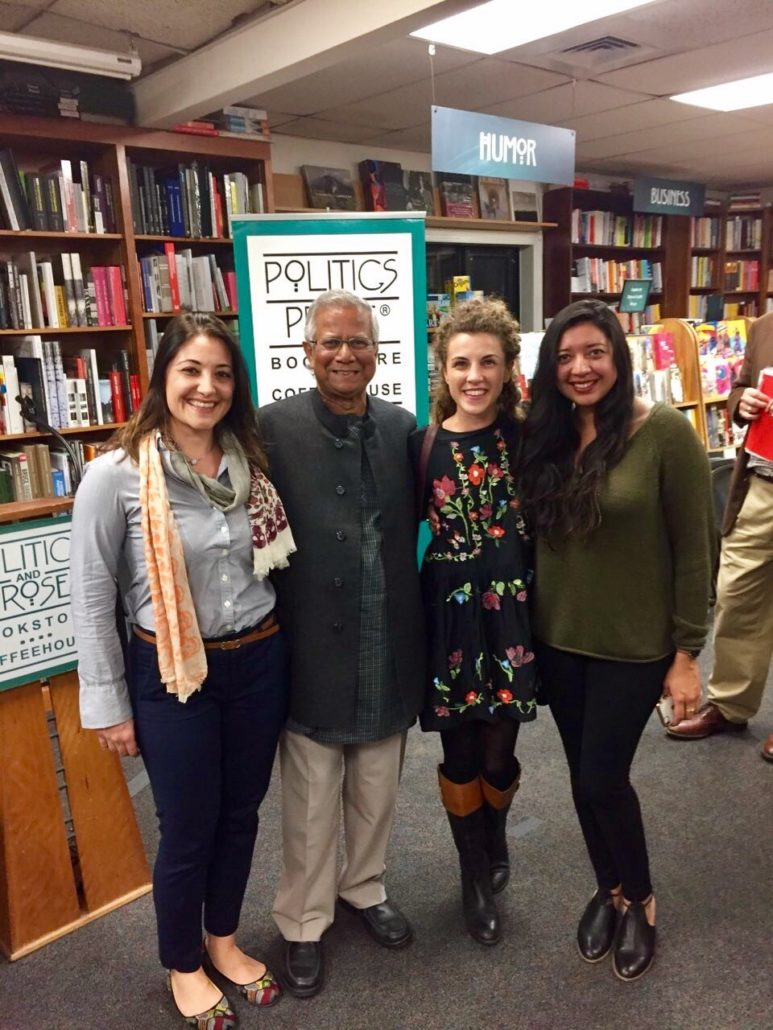
Left to right: Deborah Agustoni, Annea Hapciu (both Cohort 5), and Alessandra Clara (Cohort 3) with Muhammad Yunus
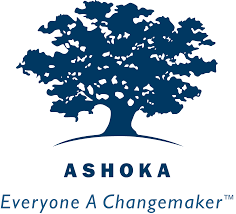 Kate Burke Gibbs (Cohort 1) is now Vice President at Greenleaf Integrative Strategies; Rebecca Villalobos (Cohort 6) was appointed Innovation Officer at the international development nonprofit Pact; Chrissy McCurdy (Cohort 6) became Executive Director of the Urban Alliance/Northern Virginia; and Marc Carr (Cohort 3) is now Ashoka’s North American Changemaker Manager.
Kate Burke Gibbs (Cohort 1) is now Vice President at Greenleaf Integrative Strategies; Rebecca Villalobos (Cohort 6) was appointed Innovation Officer at the international development nonprofit Pact; Chrissy McCurdy (Cohort 6) became Executive Director of the Urban Alliance/Northern Virginia; and Marc Carr (Cohort 3) is now Ashoka’s North American Changemaker Manager.

Two SE grads headed west to tech companies in Silicon Valley – Kate McElligott (Cohort 1) as Senior Marketing Manager at Autodesk Foundation, and Setra Yappi (Cohort 1) is Analytics Product Manager at Apple. A third grad, Michael Cobb (Cohort 2), has moved even further west – to Maui where he is assisting spiritual teacher Ram Dass.
Aaron Shneyer (Cohort 2) is now CEO of two organizations. In additional to leading Heartbeat, which he founded to bring together young Israeli and Palestinian musicians, he is One Common Unity’s new Managing Director.
Caitlin Rosser (Cohort 2) was promoted to Senior Officer, Impact and Strategic Communications at Calvert Impact Capital, and Taryn Bird (Cohort 2) advanced to Senior Manager Social Impact and Communications at Kate Spade.
 Cohort 3’s Alessandra Clara is LearnServe’s new Programs Manager; Mike Sayre (Cohort 1) is at Pact in Bogota, Colombia where he works with indigenous organization in the Amazon Basin on an USAID-funded project, and Karen Romero (Cohort 5) is Freedom Network USA’s Training Institute Director.
Cohort 3’s Alessandra Clara is LearnServe’s new Programs Manager; Mike Sayre (Cohort 1) is at Pact in Bogota, Colombia where he works with indigenous organization in the Amazon Basin on an USAID-funded project, and Karen Romero (Cohort 5) is Freedom Network USA’s Training Institute Director.
Akhtar Muhammad Amid (Cohort 6) will be working as a consultant for PriceWaterhouseCoopers in the Gulf Region, and Menbere Assefa (Cohort 8) will start work soon at Deloitte.
Two start-ups were launched this year by members of the SE Program.
Betul Ozyilmaz’s (Cohort 7) First Step Fund was incorporated in the US. Its Turkish counterpart, Ilk Adim Fonu, is helping strengthen that country’s social entrepreneurship ecosystem by providing social and financial capital to grass-root ventures.
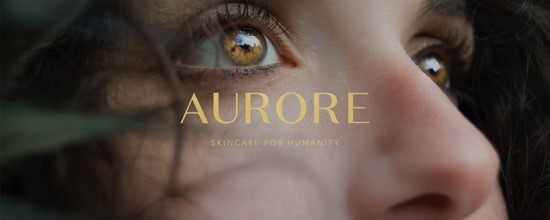
Deborah Agustoni (Cohort 5) launched Aurore, a socially conscious skincare company dedicated to disrupting the cycle of poverty that fuels human trafficking in Cambodia. She used her SE Practicum Project to plan and lay the groundwork for Aurore.
Erin Houston’s (Cohort 4) year-old start-up, Wearwell (another outgrowth of an SE Practicum), was featured in a recent American Magazine here.
Excerpt from American Magazine:
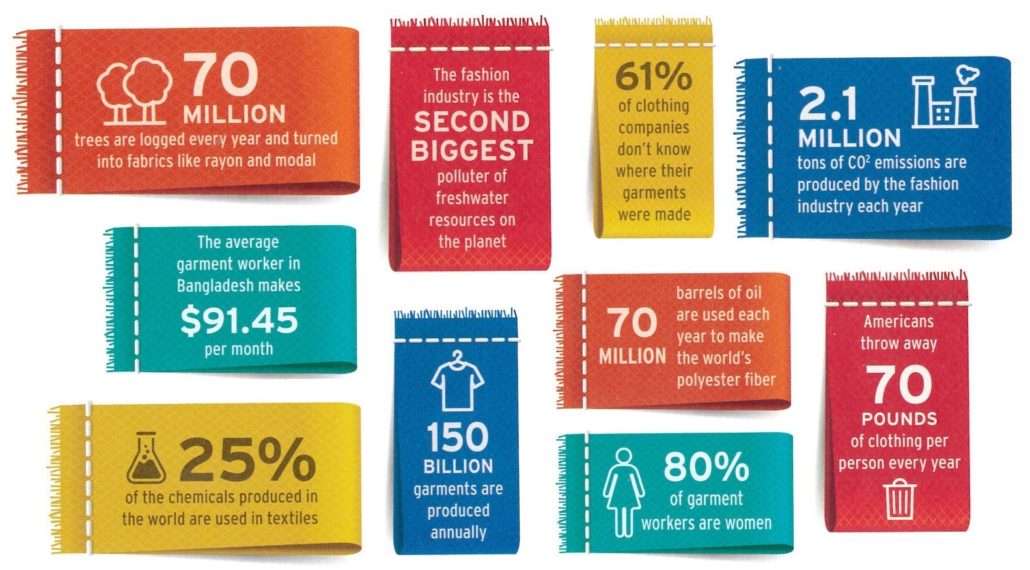
Shop Smart, Wearwell
by Julianna Rose Dow
Minimalist designer Eileen Fisher has called out her own $3 trillion per annum industry for being “the second largest polluter in the world, second only to big oil.” It’s a tough claim to prove, but there’s no question that the processes involved in the business of clothing—from production to distribution to disposal—contribute to a massive carbon footprint.
Every year the industry manufactures 150 billion garments—enough to outfit every person on the planet with 20 new articles of clothing. Eventually those new clothes get old: nearly 3 billion pounds of used clothing end up in landfills, and garments made from polyester, nylon, or other synthetic materials can take from 20 to 200 years to decompose. While natural fibers, like silk or cotton, might seem the preferable option for the environment, organic fibers, especially cotton, are water intensive, and industrial production relies heavily on pesticides that can contaminate the water supply.
And then there is the human toll. Many retailers outsource to countries where labor is cheap and working conditions for garment workers are deplorable and unregulated.
Millennials, it seems, are on it. Three out of four, according to a 2015 Nielsen study, say they would pay more for something they regard as socially responsible—a 17 percent increase from the previous year. That’s easy enough when it comes to stocking the fridge or investing in stocks, but more challenging with fashion.
Enter Wearwell, a subscription sustainable-clothing service. Founders Erin Houston, SIS/MA ’15, and Emily Kenney, SIS/MA ’14, connect fashion-conscious consumers with clothes and accessories that align with their style, budget, and social values.
The business got a jumpstart this spring via a crowdfunding campaign that raised $30,000 in seven hours and generated 400 preorders. Kenney says they want customers to “feel confident in their purchase and know they are part of something good without the burden of due diligence—because we are going to do that for them.”
Inspiration for Wearwell came from Stitch Fix, an online styling service that, six years after its founding, now ranks among the top 10 online apparel retailers. (Nearly 5 percent of online shoppers use these services for everything from athletic or dress apparel to lingerie to maternity wear.) While the services vary, they all combine user data with a personal relationship with a stylist. “We are seeing these subscription services take off,” says Kenney, “because it is like opening a present on Christmas.”
Like Stitch Fix, Wearwell customers provide information about their style (bohemian or preppy?), body shape (apple or pear?), and budget. They also identify what social issues they support, whether workers’ rights, human rights, animal rights, or environmental conservation.
Thus far, Wearwell has partnered with 20 brands that meet the standards for ethical labor and environmental practices developed by the International Labour Organization, Fair Trade USA, and Conservation International. One of those brands, for example, the Phoenix-based Shine Project, donates a percentage of its profits to first-generation college students.
Once a month or once a season, based on preference, customers receive a box of stylist-curated clothing and accessories, with information about their sources. “Made at an ethical and eco-friendly factory in Kenya from 100 percent cotton fabric made and printed in Ghana,” reads the card accompanying a pencil skirt from Bow Bow Ink, which skims 10 percent off its profits to support women’s and girls’ empowerment programs in Africa. A $30 fee covers curation, shipping, and returns; if customers buy at least one item, the charge for the next box is waived.
“It’s easy to default to try to shop ‘made in the USA’ because we know what the regulations are—but [that] isn’t inherently better,” Houston says. “If we boycott someplace like Bangladesh, we are just going to drive those countries deeper into poverty. You have to understand how complicated it is in order to determine how to motivate the fashion industry to change.”
Fashion might seem an odd niche for two graduates of AU’s School of International Service—but for both it’s a perfect fit.
While Kenney has no formal experience in the industry, she has always enjoyed telling people how to dress. The connection between her international development work and the global garment industry, she says, was obvious.
“Working on a project in the field, in a place where clothing is produced, like India or Guatemala, you see it get shipped all over the place—and eventually donated and shipped back to these countries. When I came back to the United States to work on my master’s, I took a step back and it [became] clear how it was all connected.”
Kenney currently is working with the Results for Development Institute in Cambodia to fight the institutionalization of children. “These parents are struggling with high unemployment, migration, and poverty. A lot of them have to relocate for work, and you can see how a parent giving up their children to migrate for a job is connected to someone in the United States [who is] buying a T-shirt made in a Cambodian factory,” she says.
Houston had planned to work in the field and study gender issues. International development, she believed, would give her the tools to help empower women. “But I started to realize that my strengths lie in motivating people to think about how their lives impact others and motivate behavioral change,” she says.
And then something happened that really shifted her course. She was in a clothing store, her arms full of try-ons, a few days after the 2013 collapse of the Rana Plaza garment factory complex near Dhaka, Bangladesh, that killed 1,134 workers. She noticed one clothing tag, and then another, and another: “Made in Bangladesh.” Houston walked out of the store empty-handed, consciousness raised. She set a challenge for herself: for the next 365 days, she would shop sustainably, exclusively.
Houston was working then at Devex, a media platform that partners with Fortune 500 companies and nongovernmental organizations to advance corporate social responsibility and work in emerging markets, when she had her eureka moment: Among all of these partners, she noted, not one represented the fashion industry. This apparent vacancy in the marketplace was her opportunity to elevate and empower women, who comprise 80 percent of garment workers.
Houston transferred to SIS’s Social Enterprise Program, enabling her to conduct market research and network to explore the viability of ethical shopping. Meanwhile she proceeded with her year of living sustainably.
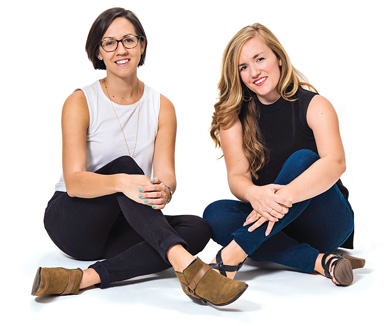
Erin Houston (blonde), Emily Kenney(glasses)
“Spoiler,” she confesses. “I couldn’t shop consciously that year. I kept thinking about it—and when I was given the assignment to pitch a social enterprise idea in one of my classes, I decided to address this problem.” She pitched the concept of a store featuring sustainable and ethically produced merchandise. Her pitch was a bust; a traditional brick-and-mortar model was too costly for a lean start-up.
Houston and Kenney were frustrated, but they kept talking, determined to find a feasible solution for advocates of ethical shopping. “I felt, if I could align my career and food choices with my values,” Kenney recalls, “why not my clothes?”
Alexandra Flanders had been wondering the same thing. The 30-year-old science teacher from Wilmington, Delaware, had been trying to shop ethically ever since her search for a conflict-free diamond for her engagement ring. New to personalized shopping services, Flanders took a chance on Wearwell and donated $340 to its Indiegogo campaign.
She hasn’t regretted her investment. “It felt very special,” Flanders says of her first Wearwell delivery, which included a tote, clutch, scarf, and a pair of bracelets. She was especially impressed with the bag: “I carry so much, I really need it to be durable.”
Even for motivated shoppers like Flanders, conscious consumption can be challenging. For example, should you prioritize laborers’ working conditions over the environmental cost of shipping an item halfway around the world? Are synthetic fibers made from recycled materials better or worse than organic natural fibers?
Like many consumers, Flanders doesn’t have time to research these issues before springing for a dress or necklace. And she is happy to pay up for the service. “Every time I use my tote, I get compliments,” she says. “And when I tell people about [Wearwell], they are usually interested. I’m so glad to have this avenue.”
That’s what Houston and Kenney want to hear. They know that social change happens incrementally and that raising awareness is half the battle. If Wearwell can help connect consumers with socially responsible brands and prove to the fashion industry that the market exists, the two women will have succeeded. Already they’re finding their market—one blouse, one bag at a time.
Excerpt from American University website here.

Alessandra Clará, SIS/MA ’16
By Stephanie Block
What started as an MA in Social Enterprise practicum project at the School of International Service (SIS) evolved into Strategic Good, a Washington, DC-based social enterprise that helps people and organizations combine their strategic mindsets with good, impact-driven business models through consulting and educational experiences.
As a result of strong relationships formed while a student, Alessandra Clará, SIS/MA ’16, graduated and founded Strategic Good along with classmates Nick Boedicker, SIS/MA ’14; Andreas Vailakis, SIS/MA ’15; and Michael Cobb, SIS/MA ’15.
“I knew I wanted to work on helping people design business models that focus on the triple bottom line: people, profit, and plan,” she said. “I wanted to introduce the concept of social entrepreneurship to as many people as possible.”
The goal of social entrepreneurship is to solve a cultural, social, or environmental challenge through business and entrepreneurship. The impact of the business is an equal priority to financial stability.
Strategic Good consults with organizations on developing business models to combine social impact and financial stability. The organization also teaches social entrepreneurship, innovation, and human-centered design (or design thinking) through workshops, classes, and curricula design.
“We’ve facilitated classes and workshops at Harvard, Georgetown, Stanford, and Dartmouth Universities and have worked with organizations like Hanes, Kate Spade & Co., LearnServe International, and United Way,” Clará said. When desgining these classes and curricula, Clará and the team work out of the Impact Hub DC, a community-driven co-working space in the nation’s capital.
Clará’s career in social enterprise also offers exciting travel opportunities: “This summer, I taught a three-week social entrepreneurship program at Stanford University, led a workshop on design thinking for innovation in the Dominican Republic and Costa Rica in collaboration with INCAE Business School, and held another workshop for the incoming MBA class at Dartmouth’s Tuck Business School,” Clará explained.
Professor Robert Tomasko, director of the MA in Social Enterprise program, explained the value of social enterprise today: “Social enterprise is demonstrating itself as an alternative to traditional capitalism, which breeds inequality. Social entrepreneurship is thriving, as made evident by the increase in funds made available to social enterprises via the growth of impact investing, venture philanthropy, and social impact bonds.”
Clará credits being born and raised in El Salvador as igniting her personal passion to make the world a better place through social change. Growing up, she witnessed social inequities. She believes when people are given the opportunity to complete an education and experience financial stability, social inequities will ultimately decrease.
Looking back, Clará is grateful for the community that she found as a student and that she continues to engage with as an alumna: “The most valuable part of my SIS experience was the unique opportunity to be part of a network of people who truly care about creating an impact in the world. The Social Enterprise program allowed me to meet individuals who aligned their work with their passion to make a difference.”
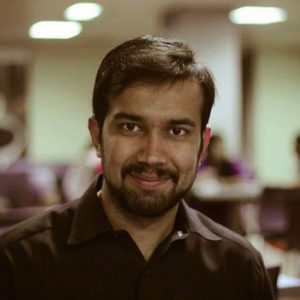
Akhtar Muhammad Abid
For his social enterprise practicum project, Akhtar created a leadership development curriculum for an NGO that runs rural schools in Pakistan, his home country. The curriculum consisted of a training manual and slideshow for instructors that will help them teach third- to eighth-grade students about leadership skills through sports and good sportsmanship.
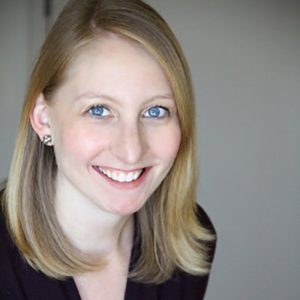
Lindsay Dahl
Lindsay created a digital marketing strategy and campaign plan to help Osa Conservation, a small nonprofit preserving biodiversity in Costa Rica, attract key markets for its new ecolodge, Osa Verde. Lindsay interviewed potential visitors, synthesized market and academic research, created a data-driven digital marketing strategy, provided recommendations for optimizing the Osa Verde website for bookings, and developed a comprehensive campaign plan that included channels, timing, and budget. The ecolodge, opening in late 2018, will help fund Osa Conservation.
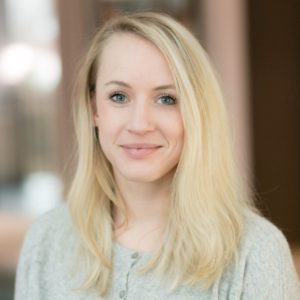
Caroline Englund
Caroline’s practicum project consisted of designing a participatory impact evaluation for Sustain Liberia, an NGO that runs a vocational school with five different programs as well as an academic school (first through 12th grade) in Liberia. Caroline first identified the causal chains leading to a new theory of change for the NGO. She then designed an evaluation of these programs and provided recommendations on how to use the data collected to raise funds for Sustain Liberia.
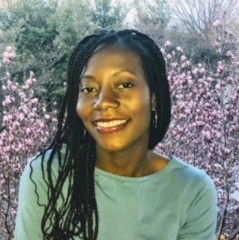
Ifunanya Enezuagu
Ifunanya organized a Social Entrepreneurs Skills Clinic, held in April 2018. Her goal was to help "low-visibility" social entrepreneurs in the D.C. area build proficiency in key areas that affect enterprise growth and management. The focus was to support local social entrepreneurs in continuing the good work that benefits their communities and to recognize the economic value of social impact.
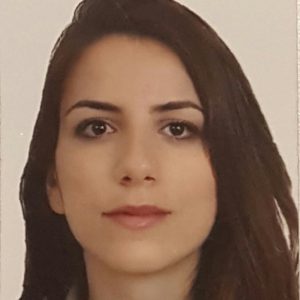
Rina Fetahaj
Rina designed an interactive workbook for social entrepreneurs who live in her native Kosovo. Her workbook distills complex concepts in an easy-to-follow manual and is intended to assist a user in connecting the dots among the mission identified, the work practiced, and the social impact envisioned. Social enterprise is relatively new in Kosovo, and Rina found there to be a lack of exposure to the practices and frameworks that guide the work of a social enterprise. When she returns to Kosovo, the workbook will be used in the first social enterprise boot camp there.
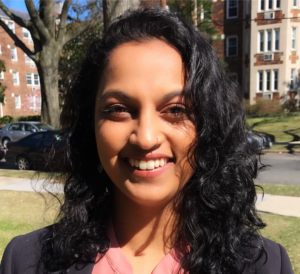
Anamika Kumpawat
Anamika created a workshop on sexual violence for young women, ages 16 to 18, who live in the slums of Delhi, India. She had the opportunity to work with a Delhi NGO, FXB India Suraksha, and do research on this issue. Anamika first conducted interviews and fieldwork for a needs assessment, helped by the relationships she had built with these individuals. As she then developed her workshop, she focused on bringing the language of this issue and most importantly, prevention tools, to these young women.
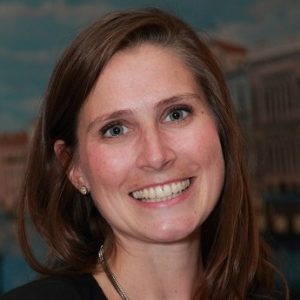
Chrissy McCurdy
Chrissy created a Toolkit for Maximizing Advisory Board Engagement, tailored to her employer and client, Urban Alliance, an organization that helps economically disadvantaged youth succeed after high school. The toolkit consisted of literature- and interview-based tips and tools for recruiting, empowering, engaging, and appreciating members of advisory boards. This project sprung from Chrissy’s discovery that few resources exist for advisory boards—boards without fiduciary and governance responsibilities—and from her interest in qualitative research and human-centered design.
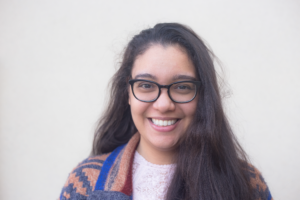
Maribel Rodriguez
Maribel created the project, Love 4 Immigrants, to celebrate immigrants through the creation of inspiring photographs and stories that display immigrants in positive and dignified ways. The storytelling focuses on the value immigrants bring to the U.S. Maribel created a website that serves as a home for saving memories so that future generations can understand in a meaningful way how immigrants’ rich experiences are part of what makes America beautiful.
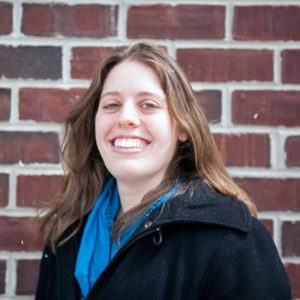
Jen Stutman
Taking the untraditional path of weaving her master’s degree in social enterprise with two years of Peace Corps service in Macedonia, Jen worked with fellow Volunteers and local NGOs to design, coordinate, and implement a three-day training program on mental, physical, and reproductive health for youth leaders across Macedonia. These newly trained youth leaders were then tasked with conducting similar programs in their home communities. Six months and nearly 20 community sessions later, around 150 youth and counting have been reached across Macedonia.
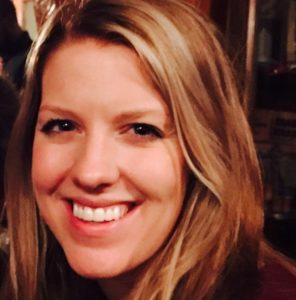
Rebecca Villalobos
Rebecca developed a B2B (business-to-business) strategy for Landmine Design, an ethical fashion company with a mission to employ and empower women in rural Cambodia. She conducted in-depth market research and interviews to build an ethical promotional product offering and strategy for Landmine Design to engage corporate partners. Rebecca’s project grew out of her belief that social enterprises in the competitive ethical fashion space must find new opportunities to grow their impact while corporations need to build more social responsibility into their buying power.

Julie Walton
Julie has extensively researched and acted upon how a model of care for children‘s homes in India can be replicated in Sri Lanka. After volunteering over the years at several children’s homes in Sri Lanka, Julie became concerned by both the care offered to orphans and vulnerable children and the lack of support from international policymakers. She has been studying this disconnect throughout her time at SIS. Her desire is that all these children have access to model care and be provided with everything they need to build a healthy and joyful future.
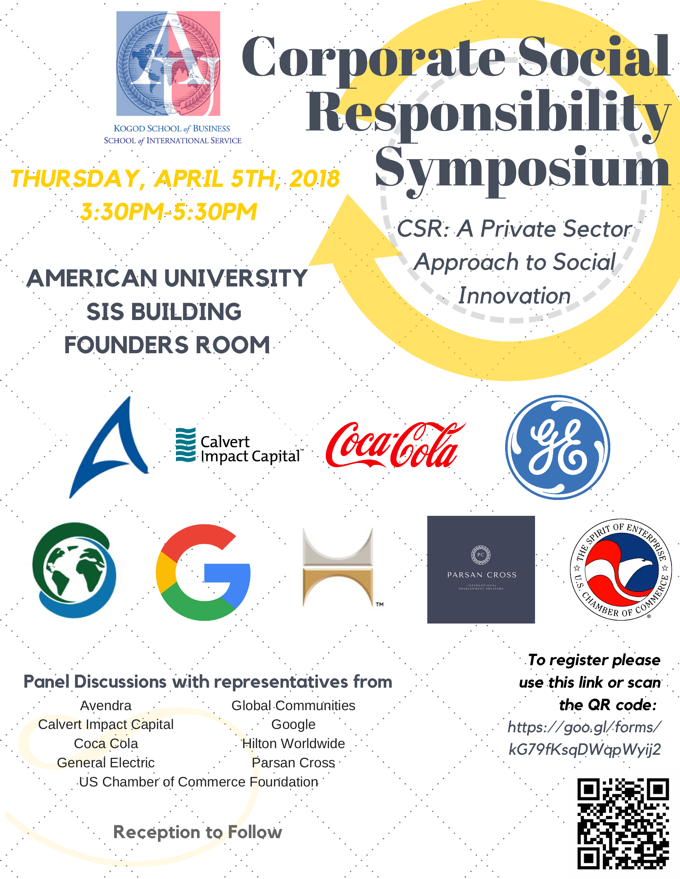
Corporate Social Responsibility Symposium
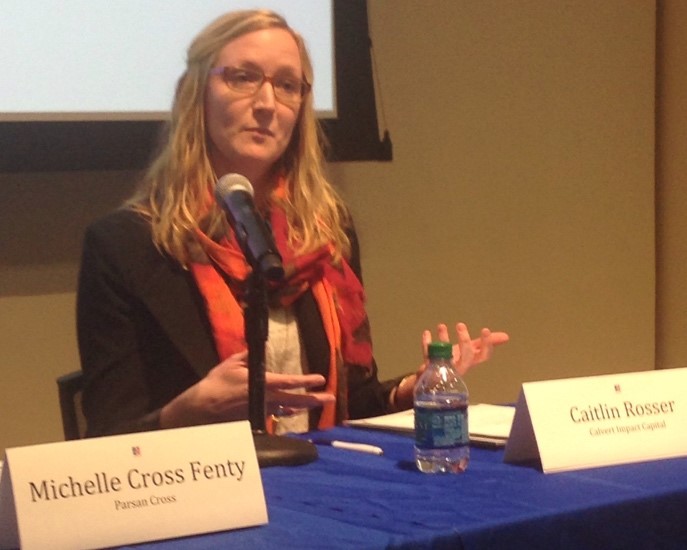
Panelist Caitlin Rosser
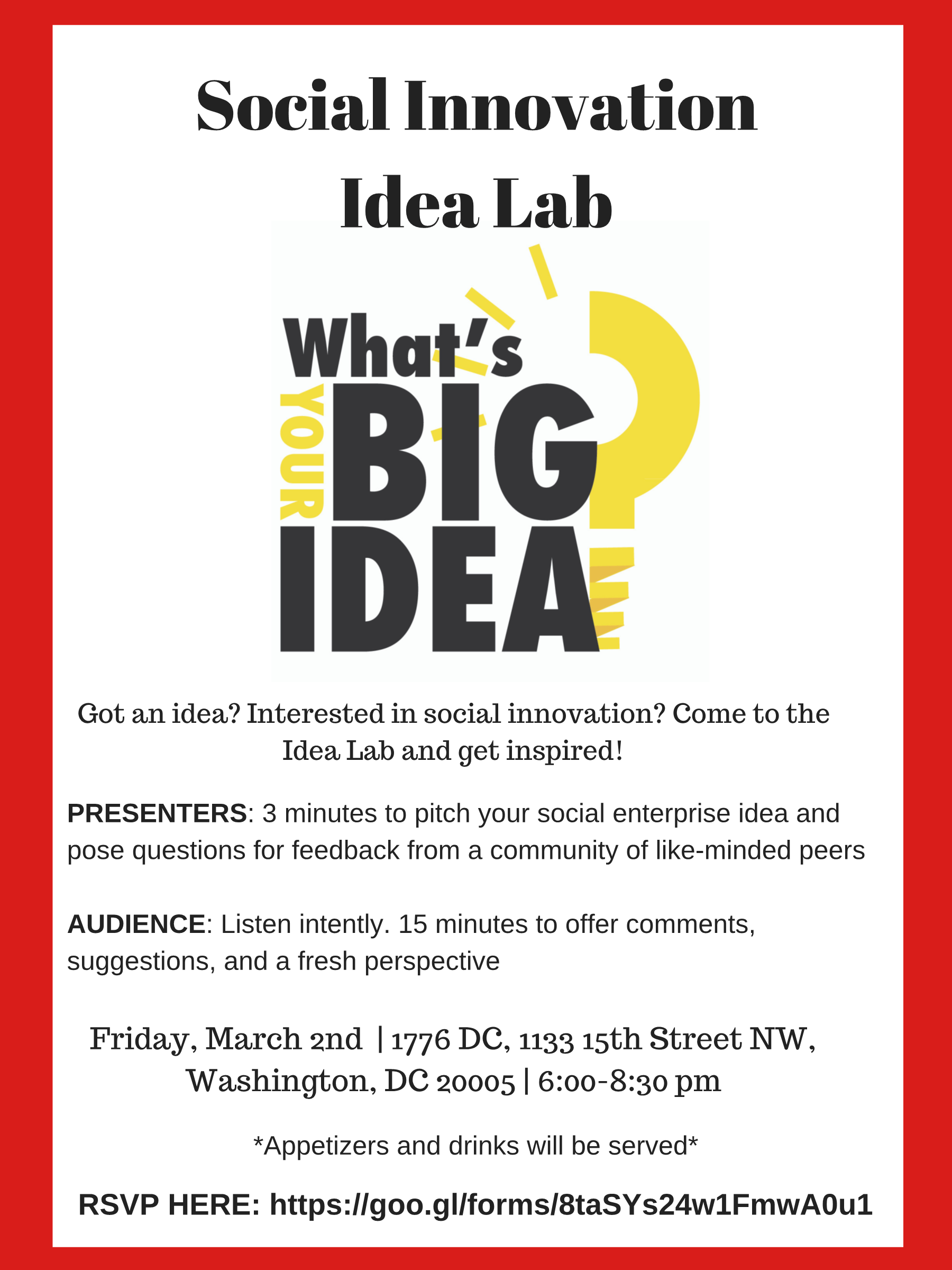
Social Innovation Idea Lab
- Professor Tomasko and alumni
- SE students at idea lab
- SE faculty and students

SE students viewing presentation
- SE faculty and alumni
- SE students
- Sharing ideas
- Capturing the moment
For more information about the American University Social Enterprise Program, visit: http://www.american.edu/sis/socialenterprise/
Or contact Robert Tomasko, the Program Director at tomasko@american.edu
